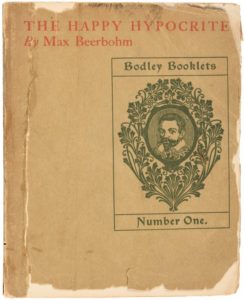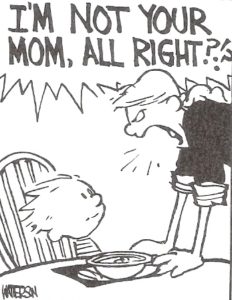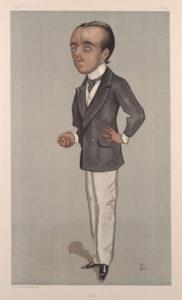Here’s my list of recommended Broadway, off-Broadway, and out-of-town shows, updated weekly. In all cases, I gave these shows favorable reviews (if sometimes qualifiedly so) in The Wall Street Journal when they opened. For more information, click on the title.
BROADWAY:
• An American in Paris (musical, G, too complex for small children, closes Jan. 1, reviewed here)
• The Color Purple (musical, PG-13, nearly all performances sold out last week, reviewed here)
• Fully Committed (comedy, PG-13, closes July 31, reviewed here)
• Fun Home (serious musical, PG-13, closes Sept. 10, some performances sold out last week, reviewed here)
• Hamilton (musical, PG-13, Broadway transfer of off-Broadway production, all performances sold out last week, reviewed here)
• Matilda (musical, G, closes Jan. 1, virtually all performances sold out last week, reviewed here)
• Les Misérables (musical, G, too long and complicated for young children, closes Sept. 4, most performances sold out last week, reviewed here)
• On Your Feet! (jukebox musical, G, reviewed here)
OFF BROADWAY:
• The Fantasticks (musical, G, suitable for children capable of enjoying a love story, reviewed here)
• Sense & Sensibility (serious romantic comedy, G, remounting of 2014 off-Broadway production, closes Oct. 2, original production reviewed here)
 IN STOCKBRIDGE, MASS.:
IN STOCKBRIDGE, MASS.:
• Fiorello! (musical, G, closes July 23, reviewed here)
CLOSING NEXT WEEK ON BROADWAY:
• She Loves Me (musical, G, suitable for bright children capable of enjoying a love story, most performances sold out last week, closes July 10, reviewed here)
CLOSING NEXT WEEK IN CAMBRIDGE, MASS.:
• Twelfth Night (Shakespeare, PG-13, two different stagings of the same play performed by the same cast in rotating repertory, closes July 10, original production reviewed here)
CLOSING NEXT WEEK OFF BROADWAY:
• Confusions (five one-act comedies, PG-13, not suitable for children, Sunday, reviewed here)
• Hero’s Welcome (serious comedy, PG-13, not suitable for children, closes Saturday, reviewed here)




 It’s already been a wildly busy year, and I just covered a back-to-back pair of out-of-town shows at Chicago’s
It’s already been a wildly busy year, and I just covered a back-to-back pair of out-of-town shows at Chicago’s  Max Beerbohm’s The Happy Hypocrite: A Fairy Tale for Tired Men, written in 1897, is an Oscar Wilde-like fable whose protagonist, Lord George Hell, is a “greedy, destructive, and disobedient” Regency rake whose face bears the marks of his dissolution. Then he falls in love with a sweet, innocent young girl named Jenny Mere. In order to court her, he dons a mask that makes him look like a saint, and endeavors thereafter to live in a manner worthy of his “new” face. Lord George and Jenny marry and live happily together—until one of his former mistresses shows up and, enraged, tears off the mask. But to Lord George’s astonishment, he discovers that the face beneath it is no longer that of a debauched rake:
Max Beerbohm’s The Happy Hypocrite: A Fairy Tale for Tired Men, written in 1897, is an Oscar Wilde-like fable whose protagonist, Lord George Hell, is a “greedy, destructive, and disobedient” Regency rake whose face bears the marks of his dissolution. Then he falls in love with a sweet, innocent young girl named Jenny Mere. In order to court her, he dons a mask that makes him look like a saint, and endeavors thereafter to live in a manner worthy of his “new” face. Lord George and Jenny marry and live happily together—until one of his former mistresses shows up and, enraged, tears off the mask. But to Lord George’s astonishment, he discovers that the face beneath it is no longer that of a debauched rake: I’m not a rake, of course, but I do suffer grievously from the sin of impatience, not with myself but with other people, as well as with such inanimate objects as elevators, stoplights, and toasters. This chronic impatience (to whose existence, I deeply regret to say, Mrs. T can testify) is by far my worst character flaw, a canker of the soul that has been with me for as long as I can remember. When I first read The Man Who Came to Dinner in my far-off youth, I unhesitatingly identified with Sheridan Whiteside’s oft-quoted lament: “Is there a man in the world who suffers as I do from the gross inadequacies of the human race?” Believe it or not, it didn’t hit me until I acted in the play in college that Whiteside is himself the most grossly inadequate of men, precisely because he believes in all sincerity that the rest of the world should cater to his every whim, and thus refuses to make allowances for the all-too-human weaknesses from which he suffers in even greater profusion.
I’m not a rake, of course, but I do suffer grievously from the sin of impatience, not with myself but with other people, as well as with such inanimate objects as elevators, stoplights, and toasters. This chronic impatience (to whose existence, I deeply regret to say, Mrs. T can testify) is by far my worst character flaw, a canker of the soul that has been with me for as long as I can remember. When I first read The Man Who Came to Dinner in my far-off youth, I unhesitatingly identified with Sheridan Whiteside’s oft-quoted lament: “Is there a man in the world who suffers as I do from the gross inadequacies of the human race?” Believe it or not, it didn’t hit me until I acted in the play in college that Whiteside is himself the most grossly inadequate of men, precisely because he believes in all sincerity that the rest of the world should cater to his every whim, and thus refuses to make allowances for the all-too-human weaknesses from which he suffers in even greater profusion. The point, I suppose, is that even if you can’t make yourself over into a better person, it’s no bad thing to at least be able to fool the rest of the world into thinking that you’re the person you wish you were. But long, hard experience has led me to believe that the incomparable Max was kidding himself about the transformative power of a mask of virtue. We are what we are, not what we seem to be—or, alas, what we do.
The point, I suppose, is that even if you can’t make yourself over into a better person, it’s no bad thing to at least be able to fool the rest of the world into thinking that you’re the person you wish you were. But long, hard experience has led me to believe that the incomparable Max was kidding himself about the transformative power of a mask of virtue. We are what we are, not what we seem to be—or, alas, what we do.